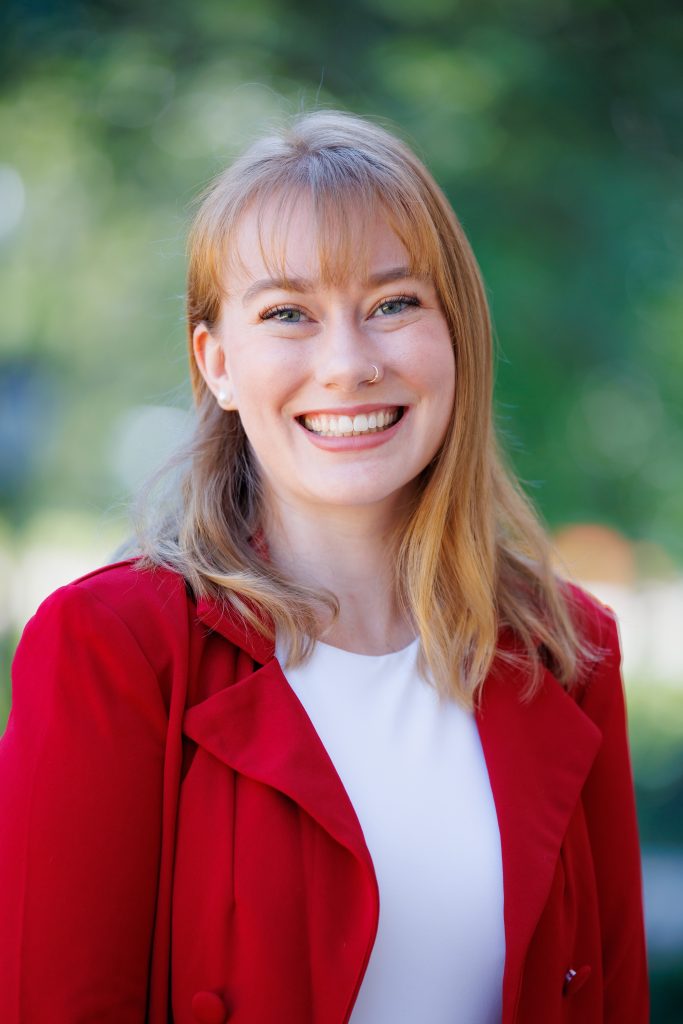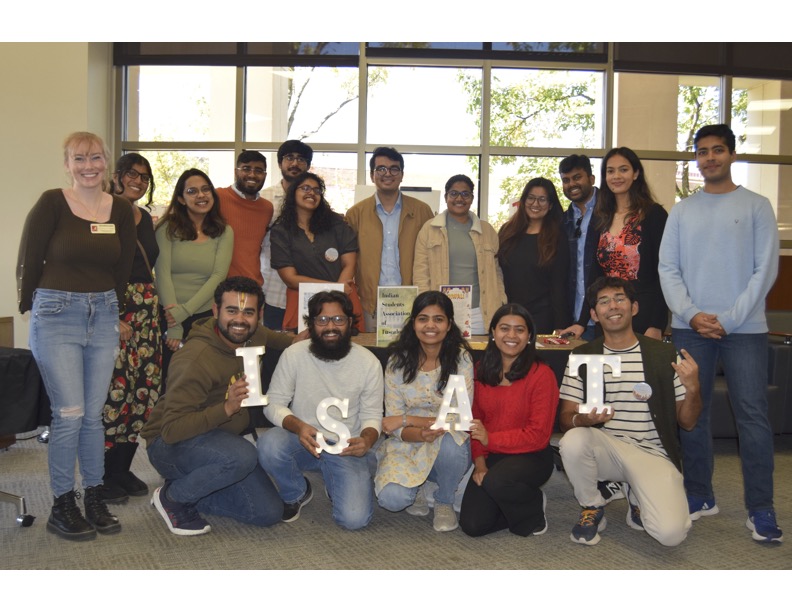
Helping international exchange students adjust to an American context requires a wide range of
skills. Logistical challenges, including advising students from different educational systems and
cultural backgrounds, combine with the educational goals of engaging students in the
negotiation of cultural differences. For Sonya Harwood-Johnson, who currently works in UA’s
Office of International Student and Scholar Services, completing her MA in Religion in Culture
has been instrumental to meet these challenges.
Sonya—who graduated with the MA in 2022—came to Alabama from Grimes, Iowa. She earned
her BA at Iowa State University with a double major in Anthropology and Religious Studies, and
a minor in Environmental Studies. While she was in high school, Sonya’s family hosted an
exchange student from Italy, who quickly became like a sister to her. Her family has since hosted
10 exchange students—all of whom have greatly influenced Sonya’s passion for international
education. The interactions with these exchange students helped Sonya realize that religion
cannot be separated from culture, as it plays a key role in identity and community formation.
These experiences, paired with her undergraduate studies, prompted her to look for a master’s
program that focused on religion in culture.
While searching for a master’s program, Sonya came across a quote from our own Dr. Russell
McCutcheon that interested her. That quote led her to consider our Religious Studies MA, and
she contacted Dr. Merinda Simmons, the grad director at the time. Discussing Sonya’s varied
interests, including American Paganism, she and Dr. Simmons were able to make a plan that fit
her needs.

During her time here, Sonya found herself looking more towards career paths outside religious
studies. Knowing her passion for international education, Dr. McCutcheon reached out to ISSS
(International Student & Scholar Services) and arranged for Sonya to have a for-credit internship
in their office—an internship that eventually led to her current job. With ISSS, Sonya focuses on
“non-traditional education,” and facilitating opportunities for international students to get to
know each other and American students while studying in Tuscaloosa.
But what does this have to do with Religious Studies?
Sonya has two overarching aspects to her job—both having significant ties to religious studies.
The first is that she must perform a wide array of logistical tasks. Being an advisor for incoming
international students from a range of educational programs, Sonya has researched
international education systems and developed her own ways to organize them. Her time here
in REL helped her recognize that classifying these students and their educational needs and
requirements is a political act and to be aware of the consequences of those groupings.
Additionally, Sonya works to facilitate opportunities for students to meet and learn about each
other. Planning events, researching cultures, and performing logistical tasks are all skills Sonya
sharpened while in the REL master’s program—skills that transcend the traditional scope of
religious studies
But perhaps more importantly, Sonya uses the soft skills she honed within REL daily. Part of
facilitating opportunities to expand students’ worldview includes respecting the ideas and
paradigms people have. Sonya’s job is to encourage students to understand other cultures in a
respectful and considerate manner—to allow students to “[become] more flexible with
differences” between them. Because of her religious studies skills, Sonya is able to navigate
discussions about authenticity, dismantle assumptions, and showcase cultures meaningfully and
without discriminating. Her time in REL gave her insight into how to promote interaction and
understanding between cultures.
While the University of Alabama Religious Studies program teaches hard skills about analysis,
communication, and digital tools that can be taken to many different fields, including
international education, it also helps students develop skills in human interaction and
community building needed to take them through life and careers.
This post is part of a series that highlights the range of accomplishments that students in
Religious Studies achieve while at the Capstone and in their lives after graduation. We all hear
questions like, “What are you going to do with a Religious Studies degree?” As this series makes
clear, the skills that students develop in Religious Studies, including critical thinking, interacting
with diverse viewpoints, social analysis, and the ability to communicate to multiple audiences,
contribute to a broad range of activities and careers.